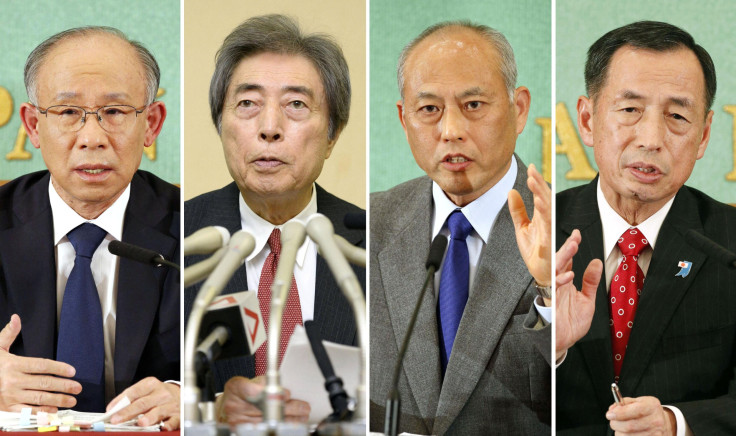Japanese NHK Board Member Naoki Hyakuta Denies Nanjing Massacre Happened

Political tensions between China and Japan are bound to increase after a board member of Japan’s public broadcasting company, NHK, was quoted denying that the 1937 Nanjing massacre by the Japanese ever took place, outraging many of China's netizens.
Naoki Hyakuta, a prominent Japanese novelist and one of 12 board members at NHK, made his comments while on the campaign for a right-wing candidate, Toshio Tamogami, in Tokyo’s gubernatorial election.
“In 1938, [Chinese nationalist ruler] Chiang Kai-shek tried to publicize Japan’s responsibility for the Nanking Massacre, but the nations of the world ignored him. Why? Because it never happened,” Hyakuta reportedly said, according to the Asahi Shimbun newspaper. Hyakuta was asserting that the Nanking Massacre was a story fabricated to overshadow the “cruel massacres” committed by the U.S. in World War II. When pressed about the Tokyo war crimes trial, in which Japanese military leaders were sentenced to death by U.S. occupiers for war crimes, Hyakuta responded by saying, “it was conducted to cover up those atrocities.”
The Nanjing Massacre, also referred to as the Rape of Nanking, was an atrocity involving mass murder and rape in the Second Sino-Japanese War. An estimated 250,000 Chinese were killed in the city. An exact figure is difficult to determine because so many bodies were deliberately burnt beyond recognition.
“During wars, some military personnel may have done cruel acts,” Hyakuta added. “But that is not something only the Japanese have done. There is no reason to teach such things to children who are still in compulsory education. I want to first teach children what a wonderful nation Japan is,” he said, referring to the inclusion of the episode in school curricula, which some Japanese nationalists oppose.
"One again, [Shinzo] Abe placed minions that deny history," one blogger commented on the story, referring to the fact that the prime minister appointed Hyakuta for his position. "Shameful Japanese politicians, afraid to face their past," another replied. "Just because you can easily forget it happened, does not mean generations of Chinese will," another blogger wrote.
China and Japan (and Korea) have a long list of disputes stemming from World War II and the conflicts that led up to it.
In Japan, public and private primary schools select history textbooks from a selection put forth by the Ministry of Education, Culture, Sports, Science and Technology every four years. According to Kathleen Woods Masalski, in a study examining Japan’s textbook controversy for Stanford University, in the mid-1960s, a historian in Japan named Ienaga Saburo submitted his history books for approval by the ministry only to discover they would be rejected because his texts contained “too many illustrations of the ‘dark side’ of the war.”
The issues continued when the Ministry of Education ordered Ienaga to remove language in his textbooks, like changing the description from the Japanese army’s “aggression in” China to the army’s “advance into” China, among other examples.
Japanese views on the Nanking Massacre vary, with some denying its occurrence outright, while others doubt some anecdotal details of the event. During his speech at the political rally, Hyakuta was explicit in stating his thoughts were representative of himself as an individual, and not NHK. There are no constraints on the NHK board governors taking part in political activities.
“I have the freedom of ideology and beliefs,” Hyakuta told reporters. “NHK governors are restricted by the Broadcast Law, but that means that we have to be thoroughly neutral and politically fair in regards to broadcasting. The law is not meant to also restrict my private activities.”
© Copyright IBTimes 2024. All rights reserved.






















